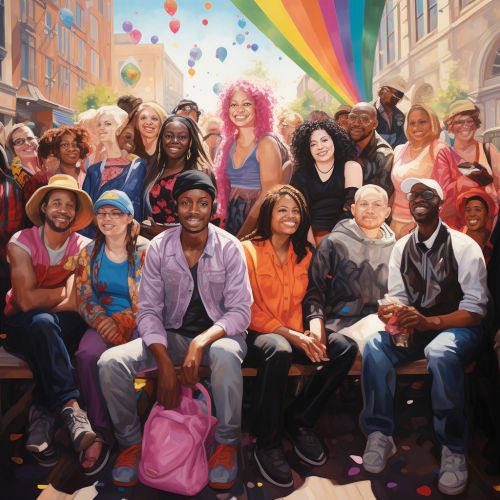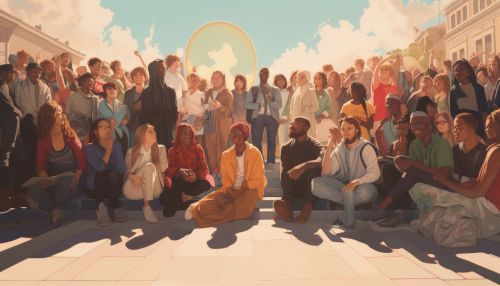Nation
Definition and Concept
A nation is a large body of people united by common descent, history, culture, or language, inhabiting a particular country or territory. It is a complex and multifaceted concept, encompassing a wide range of social, political, and cultural phenomena. Sociologists, political scientists, anthropologists, and historians have long debated the precise definition of a nation, and it remains a contentious topic in academic disciplines.


Historical Overview
The concept of a nation has evolved significantly over time. In ancient and medieval periods, people were generally organized into tribes, kingdoms, or empires, rather than nations. The modern concept of a nation emerged in the late 18th and early 19th centuries, during the period of nationalism that swept across Europe and the Americas. This was a time when people began to identify themselves primarily as members of a nation, rather than as subjects of a monarch or citizens of a city-state.
Nation versus State
It is important to distinguish between a nation and a state. A state is a political entity with a high degree of sovereignty, while a nation is a cultural and social entity. While the two often overlap (as in the case of a nation-state), they are not synonymous. For example, the Kurdish people are a nation without a state, while the United States of America is a state composed of many nations.
Theories of Nationhood
There are several major theories of nationhood, each of which offers a different perspective on what constitutes a nation.
Primordialism
Primordialism posits that nations are ancient and natural phenomena, rooted in deep-seated ethnic, linguistic, and cultural differences. According to this view, nations have existed since time immemorial, and their existence is a fundamental aspect of human social organization.
Modernism
Modernism, on the other hand, argues that nations are modern constructs, products of specific historical and social circumstances. This theory suggests that nations emerged as a result of industrialization, modernization, and political changes that occurred in the 18th and 19th centuries.
Ethnosymbolism
Ethnosymbolism combines elements of both primordialism and modernism. It posits that while nations are modern phenomena, they draw heavily on pre-existing ethnic, cultural, and symbolic materials.
Nation Building
Nation building is the process by which a nation is constructed or strengthened. This can involve a variety of strategies, including the creation of a national identity, the promotion of national unity, and the establishment of national institutions. Nation building is often a central goal of newly independent states, but it can also occur in established nations, particularly in times of crisis or change.
Challenges and Controversies
The concept of a nation is not without its challenges and controversies. One of the most significant is the issue of nationalism, which can lead to conflict and division. Additionally, the rise of globalization has raised questions about the future of nations, as borders become increasingly porous and identities more fluid.
